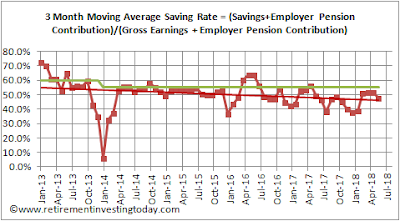| Latchi, Cyprus at dusk |
At work we’re just completing 2019 plans and I’m not excited by any of it which is a new feeling for me. I’ve put this down to a couple of things. One of the main objectives is something I’ve personally done on a larger scale twice previously so I would expect few challenges if I was leading the activity. This might be a contributor but I suspect the real reason is that FIRE now just feels 100% like the right next step combined with feeling well prepared for what we’re walking into. Not even Mr Market taking £72,000 from my wealth since its peak in mid-August and £58,000 in the last 3 weeks has made my think twice. I guess that means I’m ready.
Our readiness for our Med move is also calmly progressing. We have the removal company booked with them moving us in 2 stages for only an additional 5% cost. This was our suggestion and I was surprised at the small delta cost meaning it was the lowest total move cost option we came up with. The rationale is that the shipping time to Cyprus is about 4 weeks so what we’ll do is split our stuff in half meaning we’ll be able to stay in our current UK rental flat right up until the night before our flight and then in Cyprus we’ll only book a short term rental for 2 weeks which should be time enough to find a long term rental.
On the financial side we’ve also taken some precautions like opening additional current accounts with new banks as that will be almost impossible to do once we’re non-resident and banks have form of closing non-resident accounts when they decide it’s best for them. For example Barclays has form with residents of Cyprus being specifically targeted for closures. We’ve also opened up new UK savings accounts for a fresh 12 months bonus interest by which time we should hopefully be putting those cash funds to work on a home purchase. The best I came up with here was the new Goldman Sachs Marcus account which is giving me 1.5% annualised.
We’re also starting to think about what we’re going to need to purchase in Cyprus for our new lives and making sure we can get access to that cash quickly. We’ve therefore opened up a competitive international currency transfer account as well. One of the things I’ve decided I’ll ‘need’ very early on is a new road bike. Requirements are a relatively good price vs weight bang for buck, suitable for plenty of miles in the saddle, suitable for hill/mountain ascending/descending plus the flats and good enough that when I get dropped on club rides it’s because I’m a ‘fat unfit b*stard’ not because I’m riding something that weights 30kg. The best I’ve come up with is this:
Click to enlarge, Canyon Endurace CF SL Disc 7.0
Do any readers have any better road bike ideas?
With the move now just weeks away this makes this quarterly update the last that shows how I’ve accumulated my wealth. The next update will switch to how I’m managing drawdown. Accumulated wealth is quite a loose term in this case given since the start of the year my wealth has actually reduced by £14,000 or -1.1%. Let’s look at the details.






